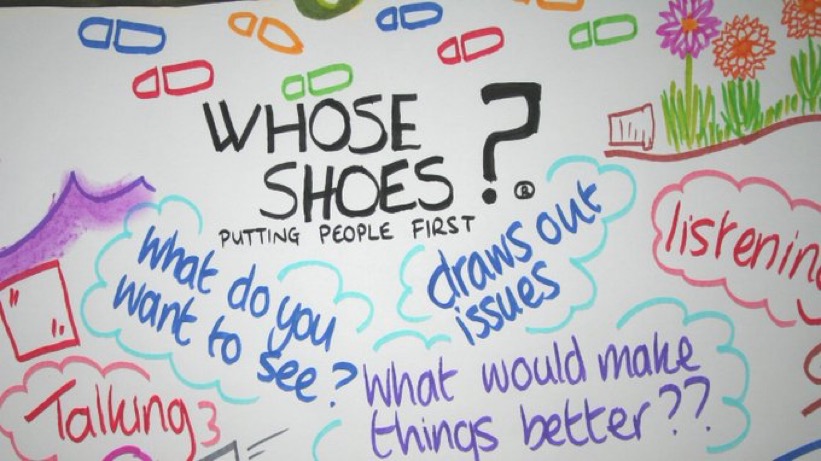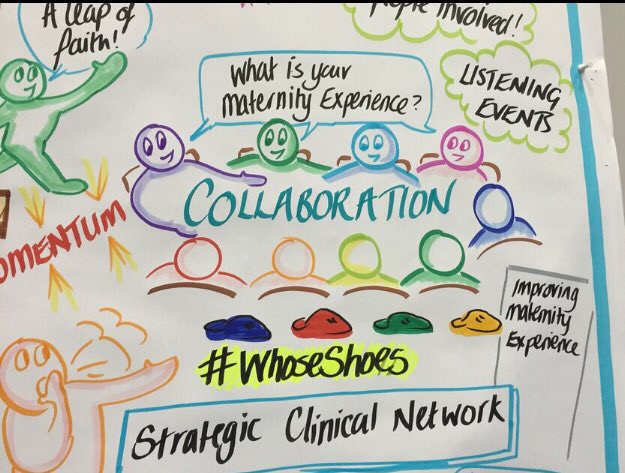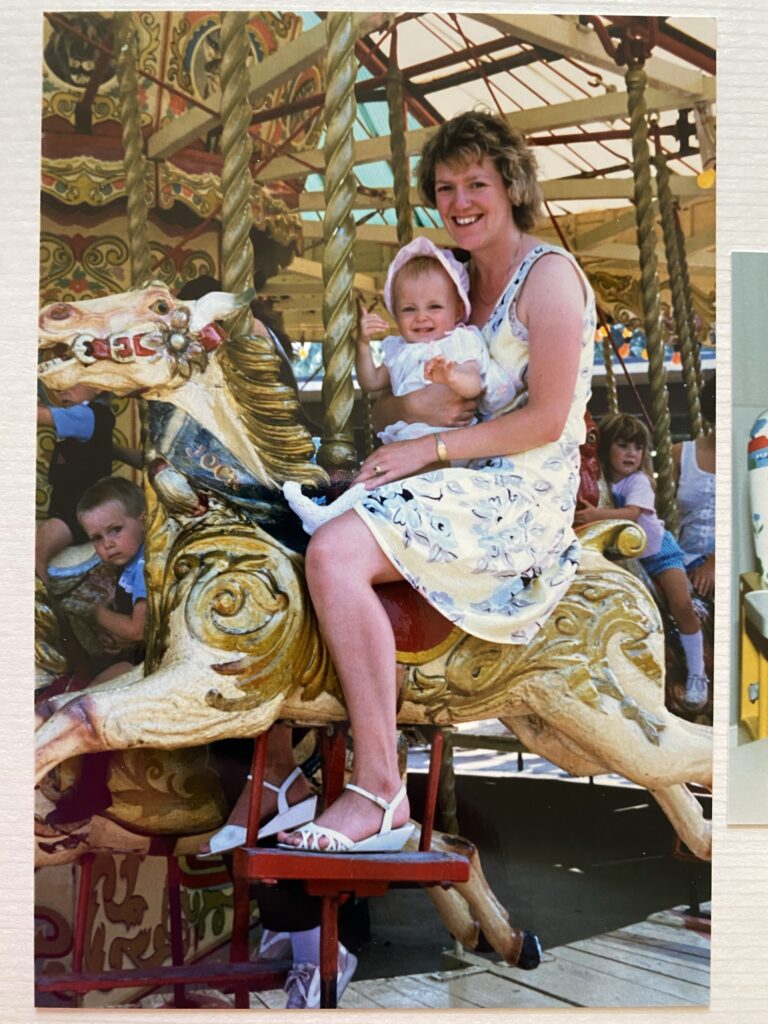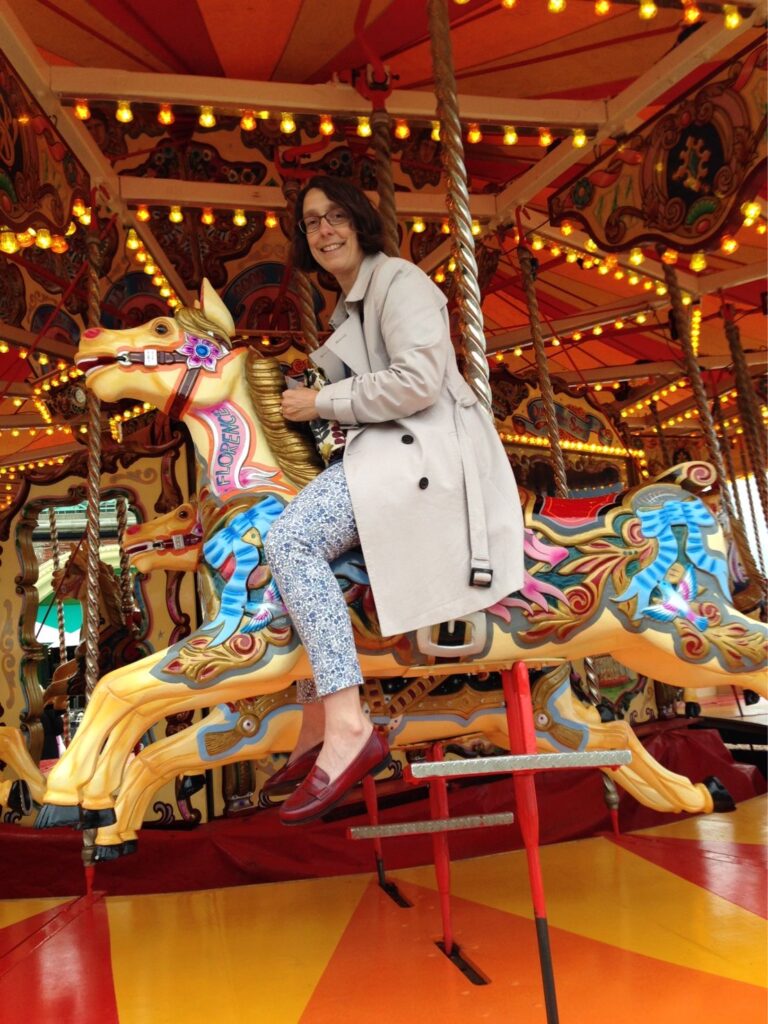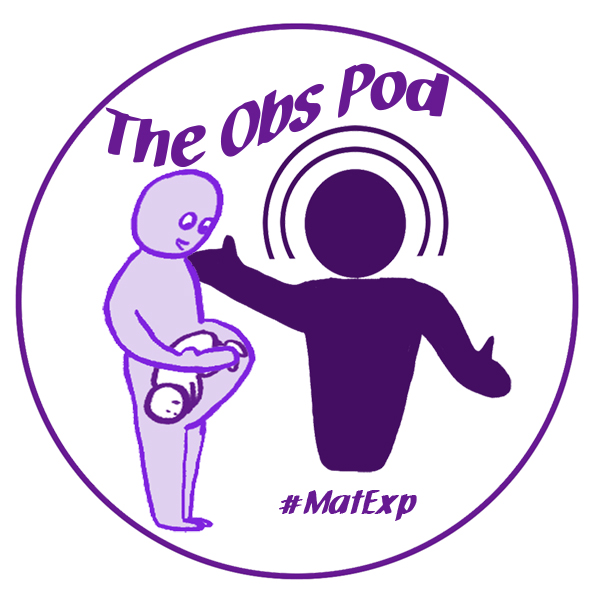
I am a big fan of the Obs Pod. It is such a wonderfully simple and yet creative idea. Florence Wilcock, a highly experienced consultant obstetrician, muses and reflects each week on different aspects of maternity care. I don’t think anyone has done this before … and certainly not in Flo’s unique style.
The Obs Pod has become a phenomenal resource. I think it is time for it to be shared very widely on all the main maternity websites. Or perhaps it is too radical, too real ?
Many of the podcasts include really practical information and insights that many pregnant women, new parents and families would benefit from greatly. Other parts will appeal more to healthcare professionals or students looking at career paths – there is something for everyone.
In typical #MatExp style, Flo’s many friends and followers are being drawn in to help.
I wanted to create a more visual way to search by topic and theme and enable people also to dip into Flo’s many blogs and videos, so I made this new Padlet, themed in line with the key categories of the Ockenden review, a bit like a mini website. I was thinking about how best to collate the ‘zesty bits’, which pick out the weekly action points but was beaten to it by Deepa Santosh, leaping forward with a plan to create infographics. How amazing would that be!
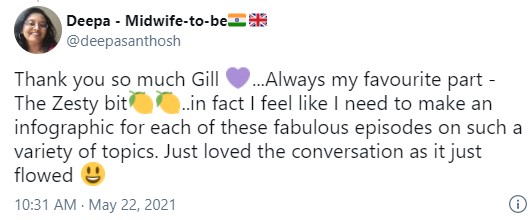
That is the nature of the #MatExp community – energy draws in more of the same and people find themselves going the extra mile, innovating to amplify each other’s stories.
As the creator of Whose Shoes, my interest in the Obs Pod is more to understand the world of the NHS, its behind-the-scenes ebbs and flows, the targets, the politics.
So when I saw the title of this weeks episode – ‘Merry-go-round’, I got excited. I thought this was going to be a trip behind the scenes, a look back-stage, so to speak. I was not disappointed. In fact I think this episode takes the podcast series to new heights. It is bold, it is real – it is a tour de force, skilfully combining the voice of experience, observing constant movement that doesn’t necessarily go anywhere, with the joy and potential offered by a constant flow of fresh-faced innovators. I expected it to be challenging; I certainly didn’t expect it to include older monkeys sitting in the trees throwing poo at the upstart younger monkeys below. What a brilliant analogy. 😂

Now, you simply have to listen to it, don’t you? Episode 58 Merry Go Round (buzzsprout.com)
So here are my reflections on the merry-go-round episode and how it resonates with my work:
Reinventing the wheel is a time-honoured tradition, particularly in public services.
As an even older monkey than Flo, and having spent many years working in local government, the image I have regularly seen is more of a concertina. The love of endless reorganisation. Structures moving from national to regional to local and back again, several times. Departments merging and then dividing again. Playing a merry tune possibly, but achieving very little.
The image I often have in my mind about the development of Whose Shoes has Merry-go round elements, but is rather more optimistic. It looks like this:

Things go round in circles but simultaneously build.
Seeds are scattered but often seem to fall on stony ground; they lie dormant but then might be gathered up in the breeze and germinate elsewhere: a different project. Flo refers to this with regard to our ‘Nobody’s Patient’ project. It has been frustrating to see how much support there was for our initial work but then, apart from a few rare exceptions such as the extraordinary work in Liverpool, very little effort to use the resources, even though they are now available in at about 80 NHS trusts. Obviously Covid hasn’t helped any of this, but I am talking pre-Covid. It is as if it is ‘Nobody‘s Project’: consigned to the ’too difficult’ box because it actually requires work between departments and organisations, rather than just sitting neatly within one sphere of command.
I have become a philosophical monkey and generally don’t throw too much poo. I sometimes get ranty, but hopefully not too often because then people switch off – I think they are more likely to be listening when you are generally positive and then … go ballistic from time to time.

Change takes time. Culture change in particular takes time. The most powerful #MatExp Whose Shoes concept is our ‘lemon lightbulbs’ – our belief that people come to their own realisation, they ‘get’ it; and then this influences their behaviour from that day onwards, not just being told something on a training course .
External things can influence to a point, certainly we can create the conditions for lemon lightbulbs to happen. But it is when people see for themselves what needs to change, and hearts and minds are engaged, that real change happens.
Impatient people like Florence, like Helen Calvert, like Joanne Minford who just grab change by the horns and run with it, are the unusual ones; they are very special leaders who drive us all. I am so proud and privileged to work with such amazing people.
In 2008, I jumped ship from my day job to create Whose Shoes. It has always been a coproduction tool, essentially the same tool as it has always been.
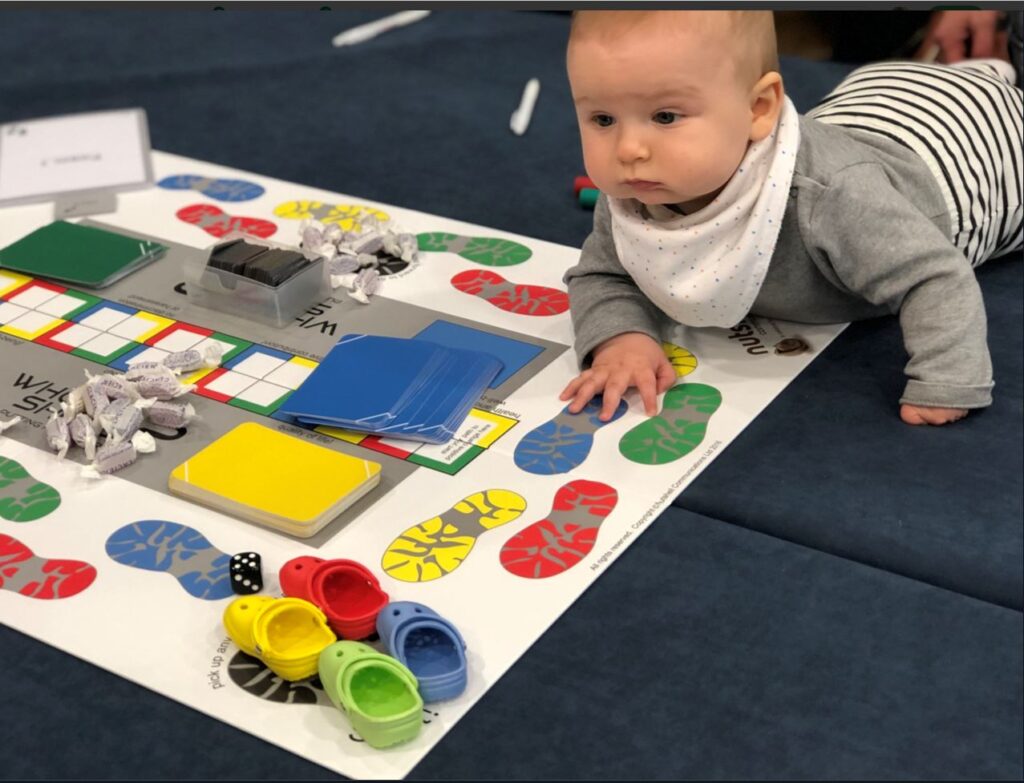
Flo and I talk about tipping points (the same now applies to her podcast and what will help it truly take off). I have learnt that tipping points come and go. But the underlying spiral keeps building. That is probably a more sustainable model?
Fast forward to 2021. Apparently, learning from Covid, the NHS has embraced coproduction at the highest levels. The corridors of power, no less. Coproduction is now to be the ‘default way of working’. The way we do things around here. I am on the Coproduction Task and Finish group – Flo’s ‘Merry Go Round’ podcast suggests that this is a very optimistic title, but I will try to be a well-behaved monkey and remain optimistic.
However, I do see a fundamental tension between a) wanting to predetermine the outcomes whilst getting people with lived experience to work with you to achieve them and b) genuinely listening and involving people and valuing the ideas equally at every step of the journey, which by definition might lead to a totally unforeseen outcome. It is exciting, it is scary. It takes a leap of faith. And probably more time than a Task and Finish timeframe – we’ll see!
Flo includes a lovely section about her Random Coffee Trial (RCT) meeting with Andrea Gibbons and talks about the power of both formal and informal networking. Networking, for me, is the most underrated QI methodology, but it is catching on.
Things like RCTs would not have happened 10 years ago. Why, when you are so busy, would you randomly meet up with someone that you had never even heard of?
Shock! Horror! Probe! What if you meet .someone who is more senior or more junior than you – the hierarchy in tHe NHS is very strong, so it is good to see our #NoHierarchyJustPeople mantra gaining ground.
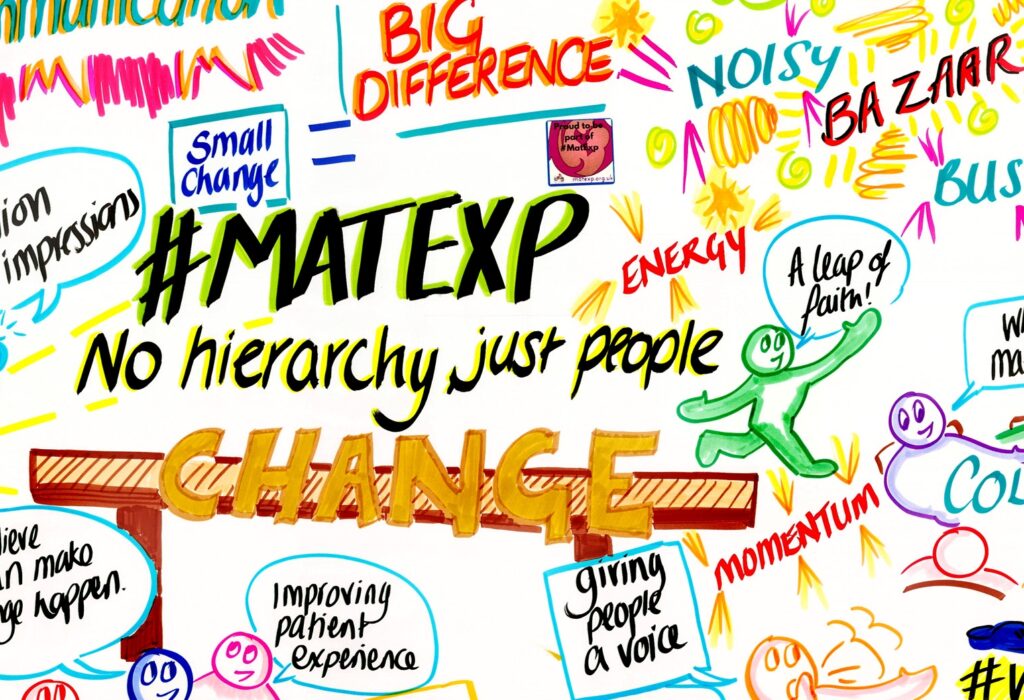
In my Whose Shoes work, I will frequently try and link hospitals and teams and ask if they are already connected? The answer can be defensive. Yes, yes they say – but in practice, it is frequently the Heads of Department who are connected. What about the rest of the team?
It is so energising to find an opposite number in another trust who is struggling with the same challenges as you. You can help each other, you might well become friends – it can be fun. Finding our shared humanity is a key theme that runs through all of our work. It cuts through perceived barriers.
I have often felt that some people in the upper echelons of the NHS love Whose Shoes until they hate it. It can be seen as opening a can of worms. It takes a level of confidence and belief to do true coproduction – to uncover the real issues and find out what people think, and then work together to do something about it. Most of the people I work with are passionate leaders; they get this and we make the magic happen together.
Flo gives a really wonderful shoutout in the podcast to my networking skills:
“Gill Phillips @WhoseShoes, who I do so much of my maternity experience work with, is a wonder at networking. she’s absolutely amazing at building connections, introducing people with ideas that may work together, lending things from one area of her work to another and also networking people up and down the country. We’’ve recently done a couple of workshops on Zoom on continuity of care and we have linked various different hospitals and individuals from different hospitals so they can share ideas on what their approach is and try and test out different ideas together and learn and benefit from that experience.”
I genuinely love connecting people, in fact I can’t stop myself. I worry that I can be a bit of a pain – I see people doing amazing things and know that they will be stronger together. I link them in my tweets and smile like a Cheshire cat when they connect, especially if they go on to meet in person. It is important. It can be life-changing.
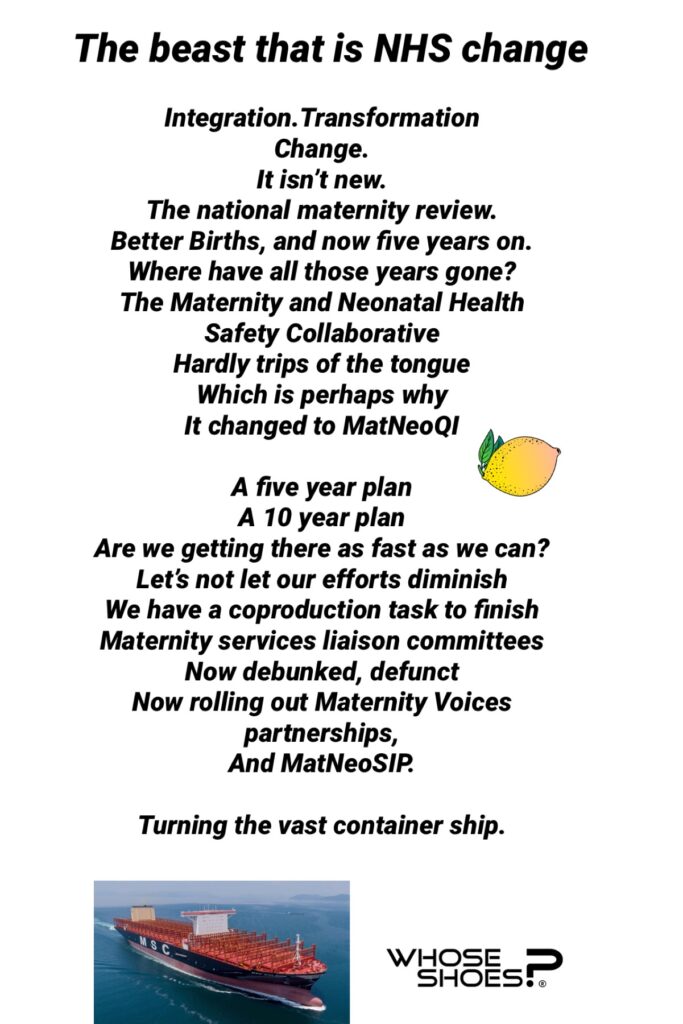
As Flo says, I am now looking to use the ‘Nobody’s Patient’ resources with new networks of people who are interested in improving the working relationships between maternity and neonatal care. A lot of serendipity is happening, The right people are coming forward, and it feels good. No merry-go-rounds in sight.
Flo’s podcasts always end with zesty bits. Please listen to her top tips this week on how to avoid going round and round in circles.
- Networking to learn and share and NOT keep re-inventing the wheel.
- Listen to women and families, particularly flagging up the simple things that can so easily be changed.
Final thought: It was lovely to see the photo of Flo enjoying the merry-go-round. It felt very symbolic. Here I am as a young mum, celebrating my daughter‘s first birthday.
What goes around, as they say, comes around. Keep going. 😉

